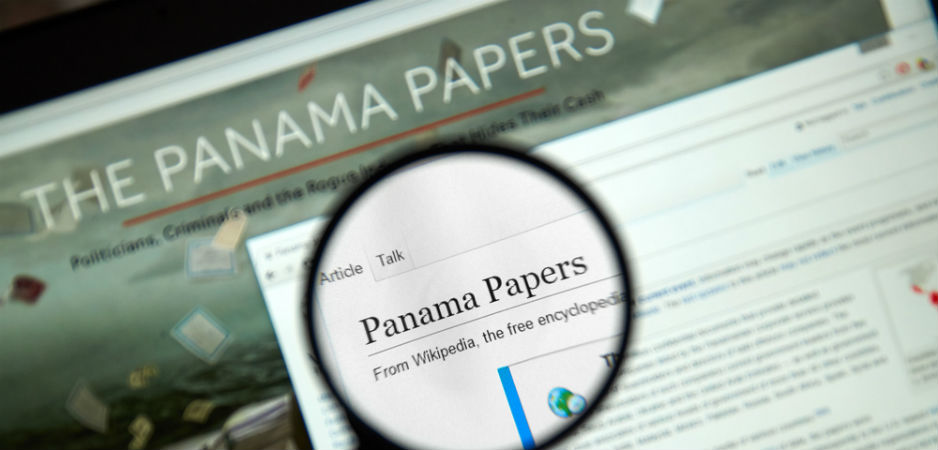The scandal has prompted increased demands from regulators in the US and Mexico, and banks will have to adapt to changing operating conditions.
The leak of about 11.5 million documents from Panama-based law firm Mossack Fonseca in April has resulted in various repercussions for those named in the files. At the political level, the scandal has exposed financial wrongdoing by elites—with Icelandic Prime Minister Sigmundur Gunnlaugsson the biggest casualty so far—and threatened political instability in a number of countries.
For the financial sector, the leaks have provided fresh impetus for regulatory scrutiny over the role of banks in facilitating the creation of offshore companies, and the accompanying risks of tax evasion and money laundering.
In the first signs of the regulatory impact from the leaks, authorities in various countries have demanded that banks disclose information about their dealings with shell companies and individuals named in the Panama Papers. For example, on April 20, the US Department of Financial Services (DFS) ordered 13 banks—including Credit Suisse, Deutsche Bank, Commerzbank AG, ABN Amro Group and Societe Generale—to hand over information on their dealings with Mossack Fonseca, comprising communications, telephone logs and details of whether their employees were involved with the Panamanian law firm in setting up shell companies. Regulators in Hong Kong and Singapore reportedly issued similar requests to their respective banks, asking them disclose details on whether they have dealings with entities and individuals named in the leaked files.
Authorities have not limited their interest only to Panama and Mossack Fonseca. Rather, the scandal has paved the way for a wider debate on banking secrecy rules that enable financial crimes and the manner in which tax havens operate. Mexico’s tax authority, for instance, widened the scope of an inquiry it first began in April to investigate 33 Mexicans named in the Panama Papers, and has since asked banking regulators to oblige banks to share details about local clients involved in transactions in more than 100 jurisdictions.
The leaked documents have brought into sharp focus the complicated corporate structures and the lack of transparency over the ultimate owners of offshore accounts that allow beneficiaries to conceal their wealth and illegally profit from tax havens. Following the revelations, the United Kingdom stepped-up its efforts to crack down on tax evasion and create a public registry on company ownership to track the ultimate owners of British firms. Australia has followed London’s lead and will become the second major economy to create such a register with the identities of the owners of shell companies.
The leak of about 11.5 million documents from Panama-based law firm Mossack Fonseca in April has resulted in various repercussions for those named in the files.
The scandal has also spurred countries to explore opportunities for collective action to tackle money laundering and both tax evasion and avoidance. In Europe, where several economies are still reeling from the effects of the 2008 global financial crisis, public tolerance for tax evasion or avoidance by the wealthy is very low, evident in a European Union (EU) proposal to draw up a list of tax havens and jointly issue sanctions against them.
Scope for criminal investigations
The catalogue of crimes revealed in the Panama Papers include cases of money laundering, tax evasion and the flouting of international economic sanctions, which raise the prospect of criminal investigations. The United States has already launched a criminal probe into possible wrongdoing stemming from the leaks, spurring an aggressive campaign by the Department of Justice against Americans suspected of evading taxes that has been underway since the 2008 financial crisis, as well as entities that have helped them stash away money in offshore accounts.
Much will depend on whether further revelations are likely. The International Consortium of Investigative Journalists—which has led the public disclosure of the documents based on information provided by an anonymous source—has so far supplied data in two tranches, the latest of which was in May when it made a searchable database of companies and individuals publicly available. Details disclosed in subsequent tranches—if any—will have a significant bearing on the momentum for criminal probes by other governments.
Moreover, the anonymous individual behind the leaks has publicly stated a willingness to cooperate with law enforcement agencies by handing over the original documents in exchange for protection under whistleblower laws, although public information on whether such an arrangement is underway is limited. Canada has said that it has acquired access to the complete set of leaked files—although it has not said how—and has warned that criminal proceedings will be brought against wrongdoers.
Outlook
Recent developments suggest that the banking industry is poised for further regulatory changes because of the Panama Papers. The focus on compliance procedures, which began in the aftermath of the global financial crisis, appears set to continue. The limited political will to abide by tax evasion and money laundering means that a greater push for changes to existing regimes is likely.
On June 8, the EU agreed to set up an inquiry committee into the Panama Papers to investigate the alleged failure by member states to impose relevant penalties under the group’s laws on money laundering, tax avoidance and tax evasion. The committee will consist of 65 members and have one year to present its findings. Regulators in Canberra are considering various recommendations, including imposing a requirement on Australian firms with foreign branches or subsidiaries to evaluate the gaps in anti-money laundering and terrorism financing regimes between jurisdictions abroad and those at home and to apply the higher standard.
Meanwhile, the US government unveiled a new set of financial regulations on May 19 which, once approved, will force companies to disclose more information about their owners, including the customer due diligence (CDD) rule, which had been under consideration for four years. The CDD rule—which the government hopes will come into effect in May 2018—requires banks to verify the identity of ultimate beneficial owners, develop adequate risk profiles of their clients, and conduct regular monitoring to report suspicious transactions and ensure that customer information is up-to-date.
Banks will, therefore, need to monitor regulatory changes across multiple jurisdictions. Moreover, implementing these proposed measures will be sure to increase compliance costs for banks and impact consumer practices, with additional information requirements for the creation of bank accounts, especially for foreign nationals. As regulators continue to compel banks to share more information on links with jurisdictions known to have opaque tax and ownership laws, banks will face increased pressure to eschew secrecy in order to assist with investigations. Entities that continue to invest in enhancing due diligence procedures will be better placed for future regulatory scrutiny.
Finally, progress on the anonymous whistleblower’s cooperation with law enforcement agencies should be monitored, as it will be a key element of any future criminal investigations. The outcome of potential criminal probes in turn will influence the dialogue over broader concerns such as banking secrecy laws and drive the direction of future regulatory changes.
*[This article is based on a report by PGI Intelligence.]
The views expressed in this article are the author’s own and do not necessarily reflect Fair Observer’s editorial policy.
Photo Credit: Dennizn / Shutterstock.com
 We bring you perspectives from around the world. Help us to inform and educate. Your donation is tax-deductible. Join over 400 people to become a donor or you could choose to be a sponsor.
We bring you perspectives from around the world. Help us to inform and educate. Your donation is tax-deductible. Join over 400 people to become a donor or you could choose to be a sponsor.
Support Fair Observer
We rely on your support for our independence, diversity and quality.
For more than 10 years, Fair Observer has been free, fair and independent. No billionaire owns us, no advertisers control us. We are a reader-supported nonprofit. Unlike many other publications, we keep our content free for readers regardless of where they live or whether they can afford to pay. We have no paywalls and no ads.
In the post-truth era of fake news, echo chambers and filter bubbles, we publish a plurality of perspectives from around the world. Anyone can publish with us, but everyone goes through a rigorous editorial process. So, you get fact-checked, well-reasoned content instead of noise.
We publish 2,500+ voices from 90+ countries. We also conduct education and training programs
on subjects ranging from digital media and journalism to writing and critical thinking. This
doesn’t come cheap. Servers, editors, trainers and web developers cost
money.
Please consider supporting us on a regular basis as a recurring donor or a
sustaining member.
Will you support FO’s journalism?
We rely on your support for our independence, diversity and quality.






